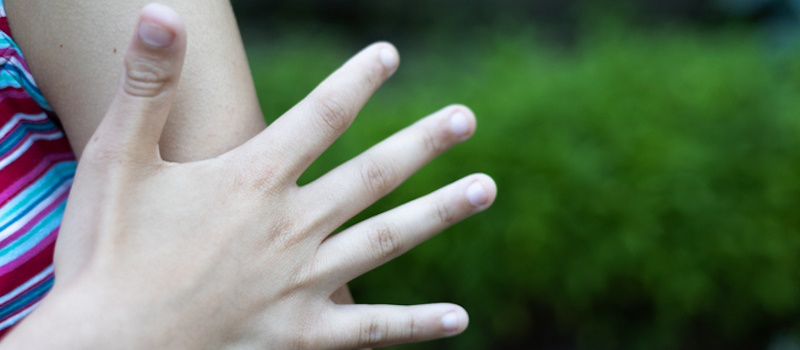How to Handle and Treat Bug Bites and Stings
How to Handle and Treat Bug Bites and Stings

How to Handle and Treat Bug Bites and Stings
To feed or defend themselves, some bugs may bite humans. Bug bites can cause symptoms including pain, swelling, itching, and redness. In extreme cases, you might even develop an allergic reaction, including anaphylaxis. To protect yourself and your family, learn more about common types of bug bites and effective treatment methods.
Ants and Flies
Fire, carpenter, flying, and sugar ants are four of 12,000 ant species that can bite or sting you multiple times. Some biting flies may transmit disease. Their bites may be painful and appear red and swollen.
Mosquitoes
Mosquito bites can spread viruses and diseases. A mosquito bite often appears small and round, with a visible bite mark in the center of the lesion.
Bees
Although bees don’t usually bite, they do sting. And you could experience a severe reaction up to two hours after a bee encounter.
Spiders
Most spider bites are non-venomous and cause minor symptoms. However, some spider bites may cause severe cramping or joint pain.
Ticks
Ticks can spread Lyme disease, Rocky Mountain Spotted Fever, and tularemia. Symptoms of a tick bite may include flu-like symptoms, and you may develop a bullseye rash.
Treat Bug Bites Effectively
Immediately after being bitten or stung by an insect, try to capture and preserve the offender in a baggie. Your healthcare provider may want to see the bug if you develop severe symptoms.
Then, wash the affected area with hot, soapy water and rubbing alcohol.
Add ice or a cold compress for 10 to 20 minutes to reduce pain and swelling.
Consider applying aloe vera, witch hazel, calamine lotion, 1% hydrocortisone cream, or a thin paste of water and baking soda to relieve itching. You can reapply the anti-itch solution several times daily until symptoms subside.
You may also take an over-the-counter antihistamine or anti-inflammatory medication for further relief.
Consider additional medical care if your symptoms worsen, you notice signs of infection, or you develop a rash, fever, or body aches.
Call 911 if you experience a severe reaction. Severe symptoms could include trouble breathing, facial swelling, dizziness, hives, nausea, or vomiting.
In general, bugs mind their own business. But if you do get bitten or stung, treat the bite as soon as possible. Like insurance, knowing the steps you can take after a bug bite may help protect your family.
